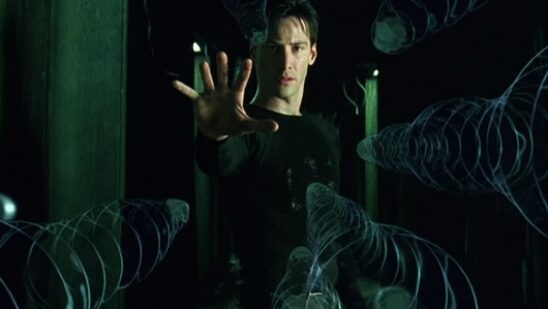
Sci-fi has become an outlet for the audience’s wildest dreams. The genre has been an avenue for iconic adventures through space and time for the last century, partly due to the unforgettable blockbusters it has conjured. With each production, the boundaries of reality are pushed further, enveloping viewers in grander concepts. Here are 15 sci-fi movies that redefined the genre:
15. The Terminator (1984)
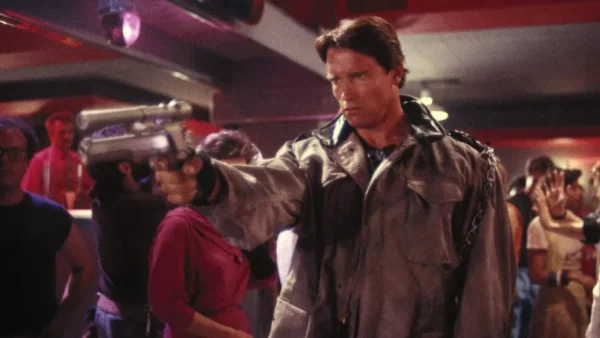
James Cameron’s dream-turned-epiphany eventually became one of cinema’s most successful franchises. Despite its outstanding box office performance, The Terminator was met with unexpected critique from experts before ultimately receiving the recognition it truly deserved
Starring Hollywood’s leading man, Arnold Schwarzenegger, as a relentless cyborg assassin, the film is an unforgettable blend of dystopian futurism, thrilling action, and impressive special effects. The Terminator is celebrated as a milestone in the sci-fi world because of its thought-provoking exploration of the consequences of technology.
14. E.T. (1982)
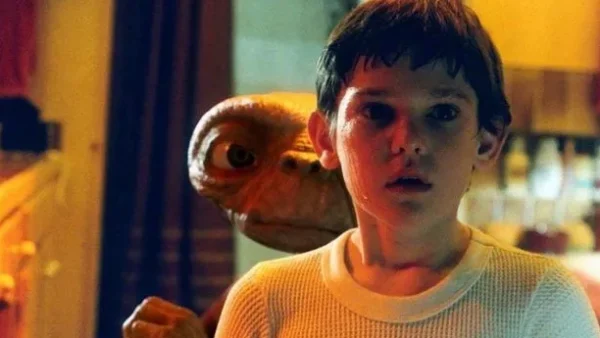
E.T.: The Extra-Terrestrial is a cinematic masterpiece that goes well beyond sci-fi conventions. Instead of relying on extraterrestrial threats and impressive technology, E.T. shifts the focus to the universal themes of companionship and exploring the unknown.
Directed by Steven Spielberg, the film revolves around the extraordinary friendship between an alien and a young boy, Eliott, played by Henry Thomas. Speilberg’s emotional storytelling leaves audiences inspired to explore the human side of science fiction.
13. Inception (2010)
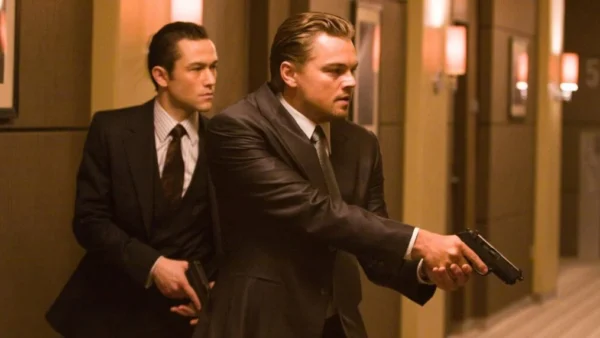
The 2010 decade was all about superhero franchises, but Christopher Nolan’s big-budget sci-fi, Inception, crushed the box office. Inception is a story-driven blockbuster that ushered in a new hope for “men in suits.” Its engineering spectacles and emotional depth remain underrated despite its widespread fame.
What sets Inception apart is its in-depth exploration of the human mind and the concept of dreams within dreams, pushing the bounds of classic sci-fi into the world of psychology and philosophy. Starring a brilliant cast including Leonard DiCaprio and Joseph Gordon-Levitt, Inception’s intricately woven, layered plot challenges viewer perceptions of reality.
12. Avatar (2009)
![]()
Avatar took a story as old as time and transported it to a new world rather than exploring new narratives. The storyline explores how humans are incapable of breaking old habits – we continue to commit genocides and wipe out nature to claim new natural resources, even when set in the lush and exotic alien world of Pandora.
To highlight the extent of human destruction, James Cameron redefined beauty entirely through revolutionary motion capture, CGI, and 3D technology, creating an immersive experience unlike ever before. Beyond its technical achievements, the exceptional cast featuring Sam Worthington as Jake Sully, Sigourney Weaver as Dr. Grace Augustine, and Zoe Saldana as Pandora’s Na’vi princess, Neytiri, is a testament to the movie’s prowess.
11. 2001: A Space Odyssey (1968)
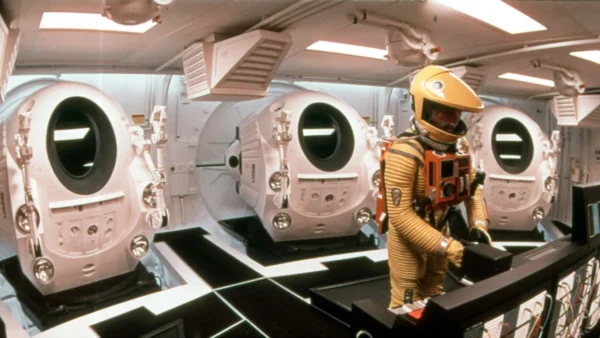
Beyond science-fiction, 2001: A Space Odyssey is hailed as one of the best movies ever made. It was one of the first movies ever set in space that accurately visualized the vastness of our universe and predicted future technology. Directed by Stanley Kubrick, the movie used a spinning set for fluid, space-like movements, which was lightyears ahead of its time. It has been replicated in modern movies like Inception.
The sentient A.I., HAL 9000, voiced by Douglas Rain, stole the show with its chilling monotone and subtle expressions questioning the relationship between humans and technology. Kubrick’s attention to detail, profound storytelling, and remarkable use of classical music add to the surreal, multisensory experience, transporting viewers beyond the cosmos.
10. Back to the Future (1985)
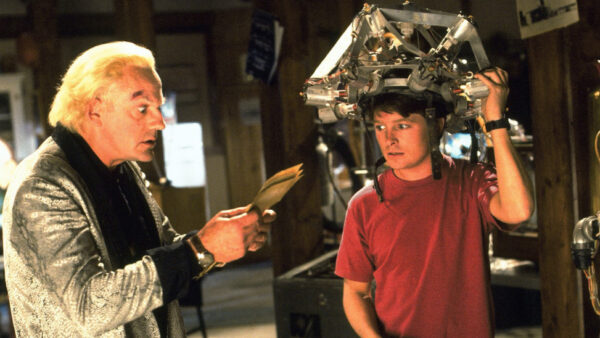
Time travel is always entertaining, but Back to the Future took the concept to a whole new level. The lack of futuristic technology in the first installment gives it a unique edge as audiences are encouraged to use their imagination. Back to the Future weaves humor, heart, and mind-bending escapades while drawing parallels to the 50s and 80s pop culture.
At the center of the film’s success are Marty McFly, played by Michael J. Fox, and Christopher Lloyd as eccentric mad scientist Doc Brown, who successfully highlight the butterfly effect – how past actions have future consequences – combined with heartfelt drama.
9. The Matrix (1999)
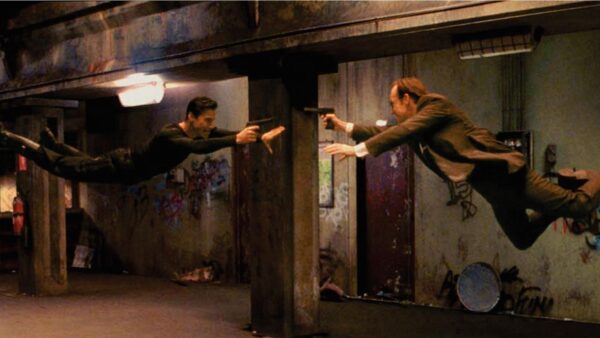
Sci-fi predominantly focuses on machines getting smarter than humans and a dystopian future. The Matrix poetically exemplifies such dystopian technology with its spine-tingling twist and turns where characters would find themselves in an alternate world – but it was all just an illusion.
Directed by the Wachowskis, the futuristic, action-packed sci-fi introduced the idea of simulated realities and enslaved humanity while challenging the boundaries between the real and the virtual. The cyberpunk movie has left its mark on various aspects of entertainment, including fashion and philosophy.
8. Blade Runner (1982)
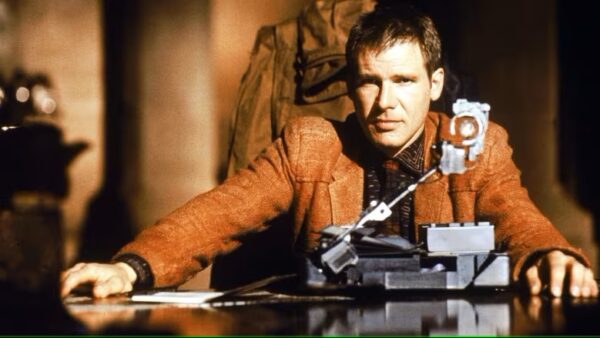
Most sci-fi films glorify technological possibilities; Blade Runner embraced a more neo-noir approach to truly get under the audience’s skin. Ridley Scott filled a visually stunning world with crime and grime that gave rise to the widespread fear that humanity is headed to its doom.
While Harrison Ford’s heroic lead stood out, the film’s provocative existential questions and disturbing visuals sparked a new wave of cinema. Blade Runner was the first film to explore how technology would apply to collective society and move beyond its control.
7. Her (2013)
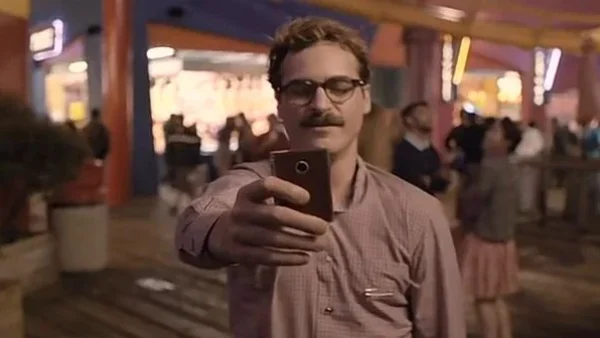
Romantic sci-fi films flooded the mid-2010s, but most are inspired by Spike Jonze’s Her. In comparison to similar films like Ex Machina, Her is a more delicate view of the relationship and connection between technology and humans.
What makes Her special is that it steps away from the usual sci-fi frameworks of futuristic technology. Instead, it captures complex emotions, chemistry, and small wisdom, which leaves us empathizing with a protagonist who falls in love with an operating system.
6. Children of Men (2006)
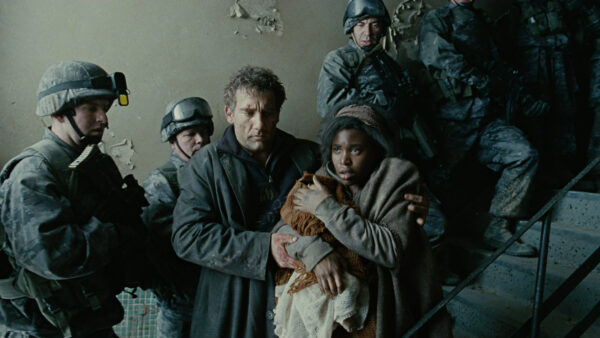
Children of Men is a rare combination of sophisticated drama and thrills, nuanced with societal parables. Although the film failed at the box office, it has become lauded as one of the best sci-fi films of all time.
The arid futuristic environment and aesthetic choice deliberately juxtapose Blade Runner. Instead of a thing from the future, Children of Men is a cautionary tale. It evokes associations between human dystopian narratives, antiquity, and infertility in a world devoid of hope.
5. Star Wars: Episode IV – A New Hope (1977)
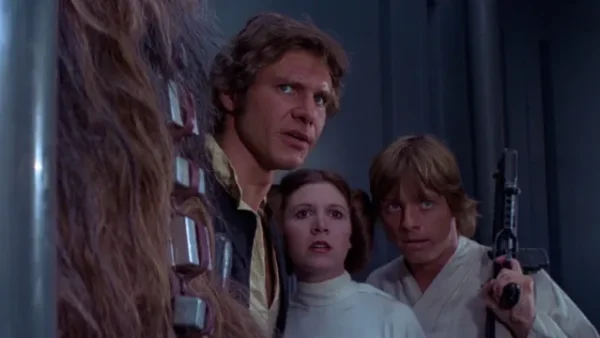
The success of Space Odyssey was changed forever with the release of Star Wars – now known as the most renowned sci-fi franchise. Episode IV transported the audience to a galaxy far, far away despite sharing many staples with predecessors – think metal robots, alien characters, and hyper-speed spaceships. Episode IV stood out from the established franchise because of its plot, which was suitable for viewers of all ages.
Given the smash hit Star Wars became, it inspired a massive shift to memorabilia and toys, unlike other sci-fi movies. Action figures of Princess Leia, Darth Vader, and Luke Skywalker cemented the cultural significance of Star Wars.
4. Eternal Sunshine of the Spotless Mind (2004)

Charlie Kaufman’s earlier works were characterized as postmodern because of their high intellectual abstraction and innovation levels. Nonetheless, their profound impact didn’t match the formativeness of Eternal Sunshine of the Spotless Mind. The movie has been titled A.V. Club’s best film of the decade.
Eternal Sunshine of the Spotless Mind compounds theoretical concepts like nostalgia, desire, and longing with accessible romance. These ideas may feel stale now, but it’s only because numerous films have since built on the movie’s legacy.
3. The Hitchhiker’s Guide to the Galaxy (2005)
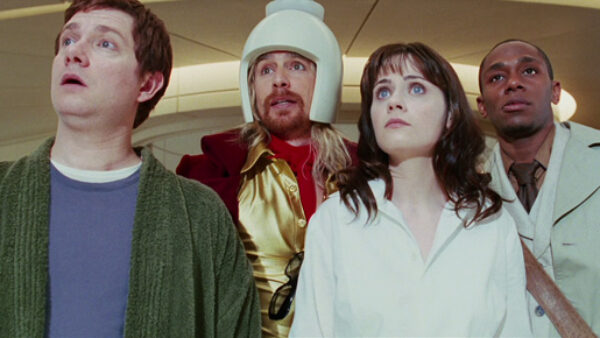
Originally a radio and book series, Douglas Adams’ The Hitchhiker’s Guide to the Galaxy is a space odyssey that brought a unique, irreverent perspective to sci-fi. Directed by Garth Jennings, the movie blends satire, humor, and absurdity to portray the consequences of Earth’s destruction, interdimensional travel, and extraterrestrial life.
The Hitchiker’s Guide to the Galaxy injects a much-needed dose of irony, wit, and playfulness into sci-fi’s serious, bleak narratives. It explores an existential through an eccentric lens, which inspired a fresh approach to storytelling and emotional themes within the genre.
2. Forbidden Planet (1956)
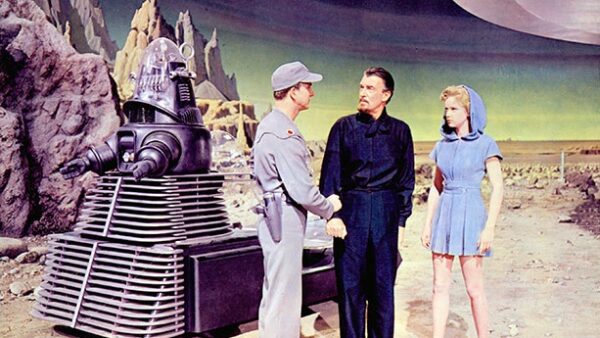
By 1956, moviegoers and filmmakers were eager to go beyond the moon. Numerous sci-films have shown aliens visiting Earth, but Fred M. Wilcox desired to take humanity beyond our solar system to a limitless world. Forbidden Planet introduced the trope of hyper-speed travel to a faraway planet through colorful visuals.
Wilcox’s visions of the future would inspire future blockbuster franchises, including Star Trek and Star Wars. Forbidden Planet also pioneered the use of an all-electric music score, which has become a hallmark of sci-fi movies.
1. Metropolis (1927)
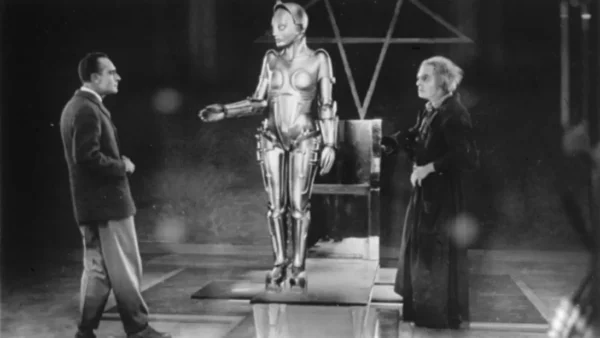
The ideas we associate with a futuristic aesthetic are accredited to Metropolis. As its name suggests, the titular “metropolis” was magnificently built, featuring a city of unimaginable scale complete with teetering levels, pointed-top buildings, flying cars, and other mind-boggling technologies. The real wow factor was fusing startling violence and a groundbreaking set that would be considered ambitious today.
Director Fritz Lang relied solely on practical filming methods, introducing his technique called the “Schüfftan process.” This relied on mirrors reflecting miniature sets to create the illusion that actors were in an actual city. Metropolis is a seminal work in cinematic history because of Lang’s innovative approaches.
Honorable Mentions
- Interstellar (2014)
- Contact (1997)
- The Martian (2015)
What are your favorite sci-fi films that redefined the genre? Let us know in the comments below!